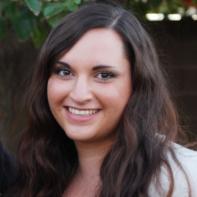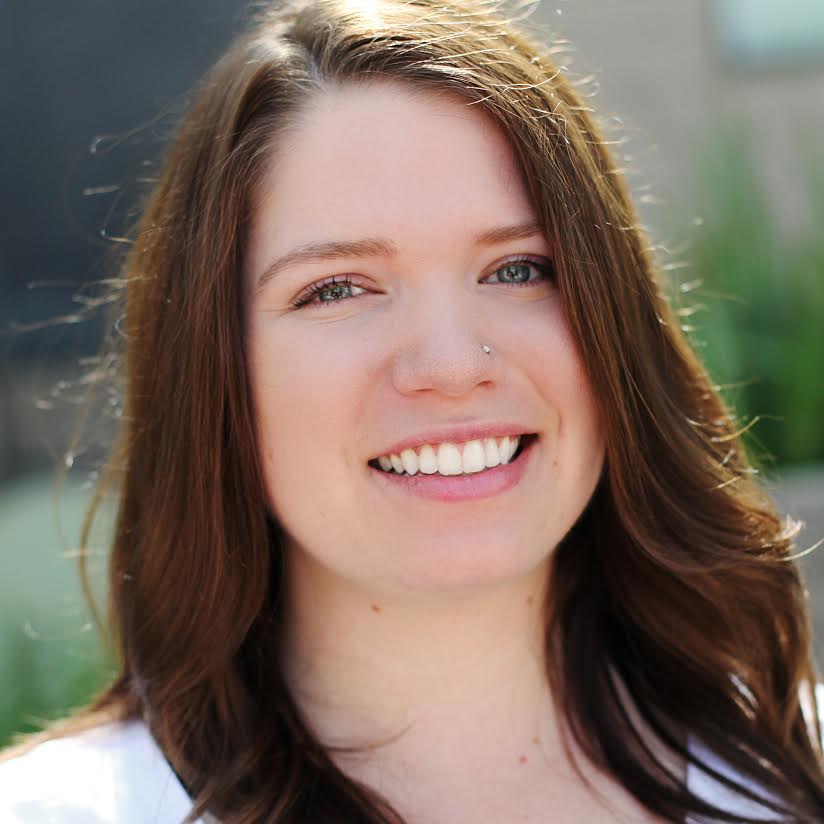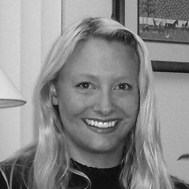Where are they now?
We are so proud of our past and present staff here at Superstition Review, and we’ve decided to celebrate the accomplishments of our past interns throughout the month of April. Each day, we will feature an intern on social media and share what they’re up to now. Then, at the end of each week, we will share a wrap-up post of all our featured interns from that week. So, without further ado…
1. Kelly Vo: Fiction Editor, Issue 1 (Spring 2008)
April 1: Twitter and Facebook announcements, find Kelly on LinkedIn
 More details: Kelly is currently the CEO of Kevo Writing (May 2015), her own firm, where she is also a freelance writer. She shares, “I love working for myself and doing something that I love. Writing has been a passion of mine since I was a kid, and now I get to write full time, which is something I never thought would happen. Even better, I run my own company and clients, so I can take the jobs that I want and keep the clients that I love. When I first decided to start Kevo Writing, I was terrified out of my mind. I had no idea if I could freelance and run a company on my own. I’m an introvert, and the idea of finding my own clients was horrifying, to say the least. Thankfully, I didn’t let the fear stop me, but that didn’t mean it was easy. It took a while to get started. I spent a month building my website and writing free articles to make a name for myself, but about three months into it, things started to come together. I got a few clients and started to get more. Now, I have a full list of clients who keep me busy and supplied with coffee and books. I write everything from news stories for MBA candidates to business e-books, magazine articles for the marijuana industry, social media content for a leading personality, and everything in between. Recently, I just wrote an article on getting rid of wrinkles! It’s an interesting job that always keeps me on my toes. I spend a lot of time researching topics and then crafting pieces that fit my clients’ needs. And, since I work for myself, I’m also able to dedicate a few hours every day to personal writing. I’ve been working on an Urban Fantasy novel, that I hope to (eventually) send out to book agents and publishers. I just have to finish it first. 🙂 That’s the thing I love best about being a freelance writer, the freedom to pursue my own dreams.”
More details: Kelly is currently the CEO of Kevo Writing (May 2015), her own firm, where she is also a freelance writer. She shares, “I love working for myself and doing something that I love. Writing has been a passion of mine since I was a kid, and now I get to write full time, which is something I never thought would happen. Even better, I run my own company and clients, so I can take the jobs that I want and keep the clients that I love. When I first decided to start Kevo Writing, I was terrified out of my mind. I had no idea if I could freelance and run a company on my own. I’m an introvert, and the idea of finding my own clients was horrifying, to say the least. Thankfully, I didn’t let the fear stop me, but that didn’t mean it was easy. It took a while to get started. I spent a month building my website and writing free articles to make a name for myself, but about three months into it, things started to come together. I got a few clients and started to get more. Now, I have a full list of clients who keep me busy and supplied with coffee and books. I write everything from news stories for MBA candidates to business e-books, magazine articles for the marijuana industry, social media content for a leading personality, and everything in between. Recently, I just wrote an article on getting rid of wrinkles! It’s an interesting job that always keeps me on my toes. I spend a lot of time researching topics and then crafting pieces that fit my clients’ needs. And, since I work for myself, I’m also able to dedicate a few hours every day to personal writing. I’ve been working on an Urban Fantasy novel, that I hope to (eventually) send out to book agents and publishers. I just have to finish it first. 🙂 That’s the thing I love best about being a freelance writer, the freedom to pursue my own dreams.”
2. Megan Richmond: Art Editor, Issue 13 (Spring 2014)
April 2: Twitter and Facebook announcements

More details: Megan shares, “Since graduating from ASU and finishing my internship with SR I’ve applied my BFA and magazine experience in two different jobs. I work at the Heard Museum as the E-Commerce Administrator where I am in charge of running their online shop as well as photographing Native American art for digital and print marketing for the museum shop. My images have been used for shop ads in the AZ Republic, Native American Art magazine, First American Art magazine and the Heard Museum magazine, Earthsong. My second job is a seasonal photographer position for a portrait company called PortraitEFX. With them, I primarily work weekends photographing youth sports leagues, weddings, school photos, etc.”
3. Dustin Diehl: Nonfiction Editor, Issue 4 (Fall 2009)
April 3: Twitter and Facebook announcements, find Dustin on LinkedIn
 More details: Dustin is currently working as a Senior Editor and Content Strategist at Casual Astronaut, a local content marketing agency. He shares, “I also write freelance editorial content for several online newspapers and magazines, keeping my creative juices flowing! I love that I get to work with words for a living. Actually using my English literature and creative writing degree (and the skills I gathered during my time as an editor for the Superstition Review) makes me feel very fortunate; not everyone gets that opportunity! Helping people create content, tell their stories and encourage action keeps the day job interesting and fulfilling.”
More details: Dustin is currently working as a Senior Editor and Content Strategist at Casual Astronaut, a local content marketing agency. He shares, “I also write freelance editorial content for several online newspapers and magazines, keeping my creative juices flowing! I love that I get to work with words for a living. Actually using my English literature and creative writing degree (and the skills I gathered during my time as an editor for the Superstition Review) makes me feel very fortunate; not everyone gets that opportunity! Helping people create content, tell their stories and encourage action keeps the day job interesting and fulfilling.”
4. Ofelia Montelongo: Student Editor-in-Chief, Issue 17 (Fall 2016)
April 4: Twitter and Facebook announcements, find Ofelia on LinkedIn
 More details: Ofelia shares, “I’m still a freelance writer for different magazines, Phoenix New Times, So Scottsdale and freelance blogger for Phoenix Magazine. I also teach Spanish and do some translations and I also just got accepted in the PhD Spanish – Mexican American studies at ASU.” Ofelia is also writing her first novel, Almost a Pilgrim, and she has her own business in Scottsdale, Arizona (Chocolate Tour of Scottsdale) – yum!
More details: Ofelia shares, “I’m still a freelance writer for different magazines, Phoenix New Times, So Scottsdale and freelance blogger for Phoenix Magazine. I also teach Spanish and do some translations and I also just got accepted in the PhD Spanish – Mexican American studies at ASU.” Ofelia is also writing her first novel, Almost a Pilgrim, and she has her own business in Scottsdale, Arizona (Chocolate Tour of Scottsdale) – yum!
5. ChristiAnne Lunsford: Poetry Editor, Issue 10 (Fall 2012) and Issue 11 (Spring 2013)
April 5: Twitter and Facebook announcements, find ChristiAnne on LinkedIn
 More details: ChristiAnne is a copywriter and social media manager. She shares, “I write blogs and website content and manage social profiles for small business owners across multiple industries. A lot of my work revolves around search engine optimization but I also write a fair amount of creative content as well. My goal for this upcoming year is to expand my business and take on additional staff members. I love the challenges and flexibility that come with my role. I can work anywhere that I have to access to wifi which makes traveling and visiting home easy. I work independently which means it’s up to me to make sure everything gets completed on time and to the client’s standards, but I also get to be creative and exercise a fair amount of autonomy. It’s also my responsibility to stay current with digital marketing trends and advancements. I also love that I get to learn about so many unique trades and industries and that I get the opportunity to know my clients on a personal level.”
More details: ChristiAnne is a copywriter and social media manager. She shares, “I write blogs and website content and manage social profiles for small business owners across multiple industries. A lot of my work revolves around search engine optimization but I also write a fair amount of creative content as well. My goal for this upcoming year is to expand my business and take on additional staff members. I love the challenges and flexibility that come with my role. I can work anywhere that I have to access to wifi which makes traveling and visiting home easy. I work independently which means it’s up to me to make sure everything gets completed on time and to the client’s standards, but I also get to be creative and exercise a fair amount of autonomy. It’s also my responsibility to stay current with digital marketing trends and advancements. I also love that I get to learn about so many unique trades and industries and that I get the opportunity to know my clients on a personal level.”
6. Riki Meier: Fiction Editor, Issue 4 (Fall 2009)
April 6: Twitter and Facebook announcements, find Riki on LinkedIn
 More details: Riki shares, “A lot has happened since interning as Fiction Editor at Superstition Review. Artistically, I’ve gained an MA in English & Creative Writing and I continue to write fiction. Professionally, I am now working as an internal auditor at Harvard University. Even though my current academic degrees aren’t related to business or accounting, I found the key to success is having a love of learning and a curious mind. I love that I am always learning in my job. One week, I could learn about Athletics, and the next I could be in a scientific lab or a museum. Each project is different and I get to interact with people in all areas and in all levels across Harvard, so I am continually learning and growing. Before I go to my day job at Harvard, I teach English on a one-to-one basis to children in China over the Internet. I find it incredibly fun and rewarding, as the children are adorable and I am learning so much about culture in China. Additionally, teaching ESL forces you to look critically at the language you use and at the nuances of meaning. I’d like to think it’s making me a better writer as a bonus!”
More details: Riki shares, “A lot has happened since interning as Fiction Editor at Superstition Review. Artistically, I’ve gained an MA in English & Creative Writing and I continue to write fiction. Professionally, I am now working as an internal auditor at Harvard University. Even though my current academic degrees aren’t related to business or accounting, I found the key to success is having a love of learning and a curious mind. I love that I am always learning in my job. One week, I could learn about Athletics, and the next I could be in a scientific lab or a museum. Each project is different and I get to interact with people in all areas and in all levels across Harvard, so I am continually learning and growing. Before I go to my day job at Harvard, I teach English on a one-to-one basis to children in China over the Internet. I find it incredibly fun and rewarding, as the children are adorable and I am learning so much about culture in China. Additionally, teaching ESL forces you to look critically at the language you use and at the nuances of meaning. I’d like to think it’s making me a better writer as a bonus!”
7. Colleen Stinchcombe: Social Networker, Issue 11 (Spring 2013)
April 7: Twitter and Facebook announcements, find Colleen on LinkedIn
 More details: Colleen most recently worked as Community Editor at SheKnows Media. She shares, “I’ve worked at SheKnows for just over three years. I started off as the Sponsored Content Editor, which I loved because it was fun to try to find the right balance between what clients wanted in order to promote their products and what the editorial team knew was good content that would perform. Then I became the Community Editor, which shifted my focus to be about helping fledgling writers or people who were working to promote their business or passions find their footing in digital media. That feels very meaningful. That said, I’ve turned in my resignation letter at SheKnows in order to take on a completely different adventure – hiking the Pacific Crest Trail this April. It will be five months straight of hiking from Mexico to Canada. I’ve been immensely grateful to have found career opportunities after leaving college (especially as a Creative Writing major!), but I feel the need to shake things up for myself. I don’t know yet what I’ll do when I return. That’s both exciting and terrifying.” Colleen will be documenting her journey on the Pacific Crest Trail on her website and on Instagram.
More details: Colleen most recently worked as Community Editor at SheKnows Media. She shares, “I’ve worked at SheKnows for just over three years. I started off as the Sponsored Content Editor, which I loved because it was fun to try to find the right balance between what clients wanted in order to promote their products and what the editorial team knew was good content that would perform. Then I became the Community Editor, which shifted my focus to be about helping fledgling writers or people who were working to promote their business or passions find their footing in digital media. That feels very meaningful. That said, I’ve turned in my resignation letter at SheKnows in order to take on a completely different adventure – hiking the Pacific Crest Trail this April. It will be five months straight of hiking from Mexico to Canada. I’ve been immensely grateful to have found career opportunities after leaving college (especially as a Creative Writing major!), but I feel the need to shake things up for myself. I don’t know yet what I’ll do when I return. That’s both exciting and terrifying.” Colleen will be documenting her journey on the Pacific Crest Trail on her website and on Instagram.
8. Sarah Brady: Blogger, Issue 14 (Fall 2014)
April 8: Twitter and Facebook announcements, find Sarah on LinkedIn
 More details: She shares, “Even before I graduated with my English Lit degree about a year ago, I knew I wanted to try working for myself. This is something I think most writers/creators want, because we have a hard time fitting our artistic minds into rigid boxes. I currently own my own freelance writing business, Key Rat Creative, and work from home. I’d already been freelancing on the side for a company blog during my senior year, while also finishing up my thesis and working at Make-A-Wish as an intern. I think the biggest thing I learned about myself through school and in-person internships was that traffic road rage and the 9-5 might actually kill me. So I knew I would have to at least try to create a sustainable career that enabled me to live as healthily as possible. I got most of my initial clients through my mother’s connections. Funny enough, she’s a dentist who knows many dental professionals/dental organizations who need copywriting. Leverage what you got, right? I’ve branched out to using freelance matching services like Upwork and have found amazing clients in the PR/marketing realm through that platform. Honestly, what I like most about my profession is the freedom it gives me in other aspects of my life. My true passion is creative writing, but writing in general is what I’m good at, so running my own business that draws on my degree and ancillary interests is self-affirming. I love that I don’t have to set an alarm and that I can live by the natural rhythm of my mind. There’s no ‘running out the clock’ because my salary is defined by completing projects, rather than filling up a certain amount of hours in the day (boredom is my worst nemesis). I can write for myself in the morning, exercise mid-day when everyone else is tied to a desk, actually prepare a real meal, and then spend my afternoon on tasks for Key Rat Creative. I’m still growing a client base and receiving support while I’m in this transitional period, but the most important thing is that I’m not giving up on this dream while I’m young and independent. If I have to get a “real” job someday, I’ll know I gave myself the opportunity to construct my own terms. The hardest part about my career is the unpredictability of the work (and the fact that a lot of people online think $5 for 500 words is reasonable, or expect writers to be experts in the subject, rather than the craft), but that’s also the wonderful thing about it too. I used to think having a lot of money would equate to happiness, but honestly, these quiet hours with my computer and being able to make my own rules are crucial to my personal well being.”
More details: She shares, “Even before I graduated with my English Lit degree about a year ago, I knew I wanted to try working for myself. This is something I think most writers/creators want, because we have a hard time fitting our artistic minds into rigid boxes. I currently own my own freelance writing business, Key Rat Creative, and work from home. I’d already been freelancing on the side for a company blog during my senior year, while also finishing up my thesis and working at Make-A-Wish as an intern. I think the biggest thing I learned about myself through school and in-person internships was that traffic road rage and the 9-5 might actually kill me. So I knew I would have to at least try to create a sustainable career that enabled me to live as healthily as possible. I got most of my initial clients through my mother’s connections. Funny enough, she’s a dentist who knows many dental professionals/dental organizations who need copywriting. Leverage what you got, right? I’ve branched out to using freelance matching services like Upwork and have found amazing clients in the PR/marketing realm through that platform. Honestly, what I like most about my profession is the freedom it gives me in other aspects of my life. My true passion is creative writing, but writing in general is what I’m good at, so running my own business that draws on my degree and ancillary interests is self-affirming. I love that I don’t have to set an alarm and that I can live by the natural rhythm of my mind. There’s no ‘running out the clock’ because my salary is defined by completing projects, rather than filling up a certain amount of hours in the day (boredom is my worst nemesis). I can write for myself in the morning, exercise mid-day when everyone else is tied to a desk, actually prepare a real meal, and then spend my afternoon on tasks for Key Rat Creative. I’m still growing a client base and receiving support while I’m in this transitional period, but the most important thing is that I’m not giving up on this dream while I’m young and independent. If I have to get a “real” job someday, I’ll know I gave myself the opportunity to construct my own terms. The hardest part about my career is the unpredictability of the work (and the fact that a lot of people online think $5 for 500 words is reasonable, or expect writers to be experts in the subject, rather than the craft), but that’s also the wonderful thing about it too. I used to think having a lot of money would equate to happiness, but honestly, these quiet hours with my computer and being able to make my own rules are crucial to my personal well being.”
Thank you so much to these interns for their service with us; you are all doing such amazing things, and we’re so proud!

